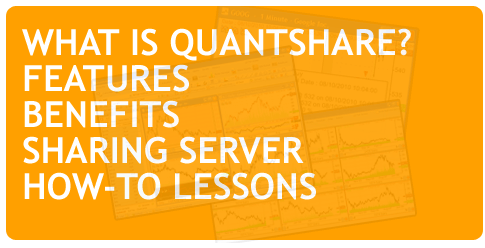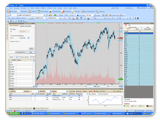 If you’re a trader or an investor, you’ve probably seen the stock market dip many times. If you happen to have substantial holdings on the growth side, a downtrend may leave you reeling and hoping for the best. However, if you’ve weathered a few downturns in the past, you know that a downtrend is part of the stock market fluctuations. In addition, it always helps to understand why the stock market is down so that you make the best trading or investing decision in light of the reasons that caused the market’s trend. Here are 10 most common reasons why the stock market is down today. Investors’ Sentiment You’ve probably seen it oftentimes how the stock market heads down south once unfavorable economic data is released. One of the reasons for this is that investor’s confidence fades whenever economic numbers released are less satisfactory than expected. Interest Rates A country has monetary policy that may result in the increase of interest rates. Companies, which borrowed money, will most likely see their stocks go down since its profits decreases due to high interest rates on their debt. As a result, they pay lower dividends to their shareholders causing a dip in the stock’s price. Furthermore, many investors may opt to cash in on their stock holdings to invest it in assets that pay interest to take advantage of higher returns. Knock-On Effect Stock market could be affected from downturns of other industries. For example, rising energy cost can lead to lower profits and falling stock prices especially for those industries that heavily rely on energy. Economic Policy Changes The government may make changes to economic policies that investors and businesspersons may deem as bad for business causing a weak stock market. This often happens when a new high government official comes into power. Global Economy The state of the global economy could result to a weak US stock market. A good example of this is the recent Euro zone crisis. While the world awaits resolution from Europe’s leaders for the crisis, the stock market has taken a beating since most investors are wary of the state of the global economy and without a good resolution in place, the market will continue to weaken. Inflation Inflation would most likely mean higher consumer prices – which in turn mean lower profits and sales. Most investors would pull out their investments in stocks and place in commodities, which proves to be more profitable since it tends to rise with inflation. Deflation Deflation is also known to cause falling stock prices. Lower prices mean slower growth and lower profits for most companies. Falling stock prices may prompt investors to pull out their investments on stocks and place it on fixed-income investments such as bonds. Bonds returns will not rely much on economic outlooks so it’s considered a safer investment vehicle when an economy suffers from deflation. One classic example of this is the Great Depression in the 1930s. Political Shock Political atmosphere may have a negative effect on the stock prices. For example, a new government official whose political platforms are deemed unfavorable to businesses might be instated into office. On the other hand, there might be some other political factors like rumors or threat of terrorism which natural causes the stock market to go down. Currency Value The value of a country’s currency would have an impact on its stock market especially if the country is heavily involved in global trade. For example, a rising US dollar means that foreign buyers of US products will have to spend more for the same product. This may prompt them to look for other suppliers from other countries with lower currency value. Thus, it could spell lower profits for US-listed companies and eventually, a falling stock market. Overbought There are instances when the stock market goes down following a sharp rise. This indicates that the market is overbought. An overbought market is a rise of stock prices that’s not justified by any market fundamentals. It could be a result of investors’ or traders’ unreasonable expectations or outlook. When the market is overbought, its assets are overvalued and it may experience some pullback as part of market correction. A downtrend is all part of the stock market cycle. That’s why if you’re investing for the long term, it’s always best to check the company’s fundamentals to see if it makes perfect investing sense to stay invested regardless of the momentary market movement. However, if you are a trader, it’s best to stick to your plans and trading strategy so that you aren't carried away with your emotion in case of falling stock prices. comments powered by Disqus |

|
|
|
|







